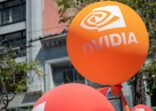There is a growing number of listed companies exaggerating their artificial intelligence (AI) technology to investors – also known as “AI washing”.
This is according to Jonathan Cohen, chief investment officer of Robocap Asset Management, an investment firm he founded in 2015 that focuses on “pure-play” robotics, automation and AI stocks.
Thanks to the explosion in investor interest for AI, Cohen said that now almost a third of the companies that he meets, both public and private, claim to have AI without true AI capabilities.
“They might have an algorithm, but they don’t have machine learning, and they don’t have neural networks,” he said. “There is a lot of hype, and ‘AI washing’ going on, which is a bigger problem than greenwashing in my view.”
“In some cases, you have startups that claim to have an AI because that’s the only way of raising money from venture capital, but they don’t have the AI yet. They haven’t figured out how to integrate AI.”
One such case was evident when he was doing due diligence on a Japanese stock that jumped eightfold in the space of six months on the back of AI hype.
When Cohen and a member of his advisory board, who is a professor of AI at Oxford, were posing questions to the firm’s chief technology officer about how they use their data and the background of their engineers, it became evident that their AI capability was overstated.
“A lot of our peers bought it, but we knew it was hype” Cohen said. “If you can avoid those situations, but at the same time stay invested for the long-term in the Nvidia’s of this world, it makes a huge difference.”
Early Nvidia investor
Cohen’s strategy has held Nvidia since 2017, long before the company shot into the mainstream with the success of its AI chips.
Now that Nvidia’s earnings have caught up and even exceeded the most optimistic projections, investors appear to be more comfortable owning the stock.
But this was not the case even as recently as mid-2023 when many investors were doubtful the stock could continue to grow after a 100% rally.
“It’s hard for people to realise that something can continue to grow a lot more after a good run,” Cohen said.
“I don’t think I was very good at convincing people that Nvidia still had room to grow. People were like, ‘come on you made 100% this year, take your profits’, but this is not our mindset and I don’t think it’s right way to think about this.”
Despite rallying some 270% since mid-2023, Cohen is still bullish on Nvidia because of the success of its latest Blackwell chip and the interconnection between its microprocessors which optimises the compute power of servers.
Cohen believes these software capabilities of Nvidia are somewhat overlooked by many investors: “The fact that they are into software means that every engineer in AI learns how to program in CUDA,” he said.
Cohen said: “It would be as if you were an accountant in the US where one of the requirements would be to know GAAP accounting; if you are in machine learning, you need to know CUDA coding.”
CUDA (Compute Unified Architecture) is a computing platform and programming model developed by Nvidia to use its graphical processing units (GPUs).
Despite this advantage, Cohen warned that semiconductors are still a cyclical industry and that at some point there will likely be an overcapacity.
This is one reason he has been trimming Nvidia in the Robocap strategy. The other reason being that its explosive growth has meant that selling has been necessary to keep the position size under 10%.
While many investors still only see AI as an investment theme, Cohen argues it is better to view it as an industrial revolution.
“It’s disrupting every industry, without exception,” he said. “I think the impact that it will have, not just on the economy but on humanity, is very profound.”















